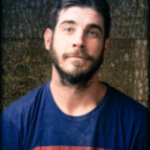Alumni
GSLL alumni go on to do amazing things
GSLL students go on to teach English in foreign countries and do business around the globe. They go on to top graduate schools and professional schools ranging from linguistics and comparative literature to foreign policy and medicine. Success after GSLL is measured, however, not according to the number of degrees our students tag on to their names or the salary they command. GSLL students succeed when their aspirations become reality.
Below you’ll find details about alumni from both GSLL’s undergraduate programs and its Ph.D. program, now jointly administered with Duke University.
M.A. and Ph.D. AlumniMore Undergraduate Alumni Stories
Do you have a success story about your life after GSLL you’d like to share? Write us!
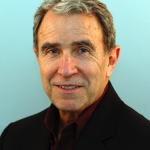 Peter Ross Range, ’63
Peter Ross Range, ’63
Peter Ross Range is a former journalist for Time Magazine and author, most recently, of 1924: The Year That Made Hitler (2016). Read more about how German at UNC impacted his career:
Read Peter's story...
I’m a journalist and author—but I owe my career to learning German at UNC.
A one-year scholarship sponsored by UNC at a German university lured me to study German. Because of the fluency I acquired, and my subsequent majoring in German literature, I was later hired by Time Magazine as its Berlin correspondent.
A half-century on, I can look back on decades of covering war and politics, serving as a White House correspondent, traveling the world and writing books—all because of the serendipity of German and Time Magazine.
In recent years, I have frequently returned to Germany. I have interviewed business leaders, energy innovators and political figures for an update of my fifty-year involvement with the country.
My most recent book is 1924: The Year That Made Hitler. The coming one is about Hitler’s rise to power, 1925-1933. Long research days in German archives are possible only because of the rigorous teaching I received in the UNC German Department. That training included mastery of the old German Gothic type (Fraktur in German), an absolute necessity for researching Hitler in the 1920s.
But German fluency is not a musty skill. Almost daily I read the websites of several German newspapers. I am constantly reminded of my good fortune in learning German at Chapel Hill. Knowing the language of Europe’s most dynamic and influential country is a superbly useful and contemporary skill. (10/14/2016)
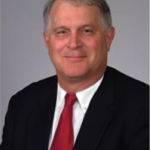 Dr. Joseph M. Jenrette, ’73
Dr. Joseph M. Jenrette, ’73
Dr. Jenrette majored in German and went on to medical school and is now the chair of the department for radiation oncology at the Medical University of South Carolina College of Medicine. Read more about how his German major shaped his career in medicine:
Read Joseph's story...
I was a pre-med student but wanted a solid liberal arts major that was not confined to the sciences. I had had excellent teachers in high school and was immediately attracted by the outstanding program in German at UNC. The personalized attention was terrific.
I have always felt that college was a great opportunity to learn about things that one would not necessarily otherwise have learned. German was a wonderful choice that I made. I was fascinated by the literature, much of which was unavailable in translation at the time. The literature provided me with a platform to develop my own points-of-view in life that became more diverse than would have otherwise been expected.
I also believe that precise communication is very important and that an understanding of the structure of language is basic to communication. To study language structure as a college student gave me the opportunity to better understand components of language such as mood, tense, subject/verb agreement, clauses, etc., all of which are elemental for me as a physician.
I left UNC and moved to Charleston, SC, to go to medical school. Forty-three years later, I am still at the medical school where I am on the faculty as a practicing radiation oncologist and chairman of the department. Although I have had few German patients throughout my career with whom to practice speaking, I am convinced that my major in Germanic Languages has helped me to relate to a diverse population and to remain open to an infinite number of points-of-view.
In college, people asked me over and over what I expected to do with my German major. It helped to develop me into a better person and perhaps a better doctor. I remain grateful to the professors who instilled those virtues in me. (10/14/2016)
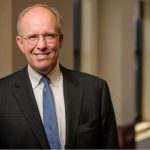 Douglas Berry, ’77
Douglas Berry, ’77
Douglas Berry received his M.A. in German, went on to Vanderbilt Law School, and then went on to work for the Tennessee Attorney General’s office. Read more about how his study of German literature shaped his profession:
Read Douglas's story...
I took my M.A. in German in 1977 from UNC Chapel Hill. After graduating from Vanderbilt Law School in 1979, I went to work for the Tennessee Attorney General’s office and since 1986 have been in private practice in Nashville. My practice consists of mostly civil litigation, with an emphasis on land use and eminent domain. My current firm is Miller & Martin PLLC, a regional firm with offices in Nashville, Charlotte, Atlanta, and Chattanooga. I have always tried to find ways to “keep up” my German—reading literature (Mann, Rilke, Kleist are favorites), listening to Deutsche Welle, and reading Die Zeit, which I subscribed to for years. In 1992, I helped to organize the Young Leaders’ Conference for the American Council on Germany (“ACG”) in Nashville and met for the first time young people from the former GDR. I also helped to organize the Nashville Warburg Chapter of the ACG soon afterwards and have been the chapter president since 2006. I travelled in 1992 as a McCloy Fellow to the former East—Jena, Magdeburg, Wismar and Berlin. I became involved with and was eventually the President of Sister Cities of Nashville. In 2003 Nashville and Magdeburg signed their city partnership treaty, a project I had worked on for five years. I was a charter and founding member of the Tennessee Chapter of the German American Chamber of Commerce, Southeast. Lastly, I have been the Honorary German Consul for Tennessee since 2004. I have been lucky enough to go back to Germany almost annually since the mid-90s. I cannot underestimate the positive influence that those two years of my life have had on my life and career. (11/13/2016)
Donald Dyer, ’80
Dr. Dyer is Associate Dean for Faculty and Academic Affairs in the College of Liberal Arts and Distinguished Professor of Modern Languages at the University of Mississippi, where he has been teaching for the past 32 years. Read more about how his Russian major and experiences at UNC helped shape his career.
Read Don's story...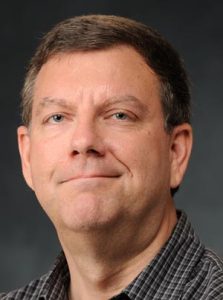
When I arrived in Chapel Hill in the fall of 1976, I wanted to major in Astronomy, and I started taking Russian as a freshman because I wanted to study a foreign language that other students weren’t studying. I was so inspired by my first- and second-year teachers of the language that I decided to major in Russian, and I started thinking about becoming a university professor someday. As a sophomore, I took a Turkish class from Professor Victor Friedman, a Balkan linguist in the Department of Slavic Language and Literatures, which later merged with the German department. Dr. Friedman became my advisor and my mentor.
I went to the Soviet Union in the summer of 1979 with Ms. Emma Treml, a member of the Russian faculty at the time, and during my senior year, while writing an honors thesis on Turkic loanwords in Russian, I decided on graduate school at the University of Chicago to study Slavic and Balkan linguistics. I think I was the one of only two Russian majors who graduated in 1980, something I was extremely proud of! My strong training in Russian and Balkan languages at UNC made me a great candidate for graduate school, and after nearly a decade in the
Windy City, during which time I frequented Bulgaria, I completed my doctorate and took my first job as an assistant professor of Russian at the University of Mississippi, where I have been ever since. Here in Oxford, I rose through the academic ranks and for twelve years served as Chair of the Department of Modern Languages. In 2017, I became an associate dean in the College of Liberal Arts, and today I oversee matters involving faculty and department chairs in the College to include promotion and tenuring, committee assignments and governance, teaching awards, international students and faculty, interdisciplinary minors and programs, and assessment.
I remain very proud of my UNC degree in Russian, which prepared me extremely well for my graduate work and my future career. I will always remember fondly my time in Dey Hall and the wonderful faculty in Chapel Hill who taught me.(9/23/2020)
Jamie Singer, ’96
Jamie lived in the German house dorm and interned at a German-speaking chemistry lab during her time at UNC while she double majored in German and Chemistry. How can studying German help cure cancer? Read the rest of Jamie’s story to find out:
Read Jamie's story...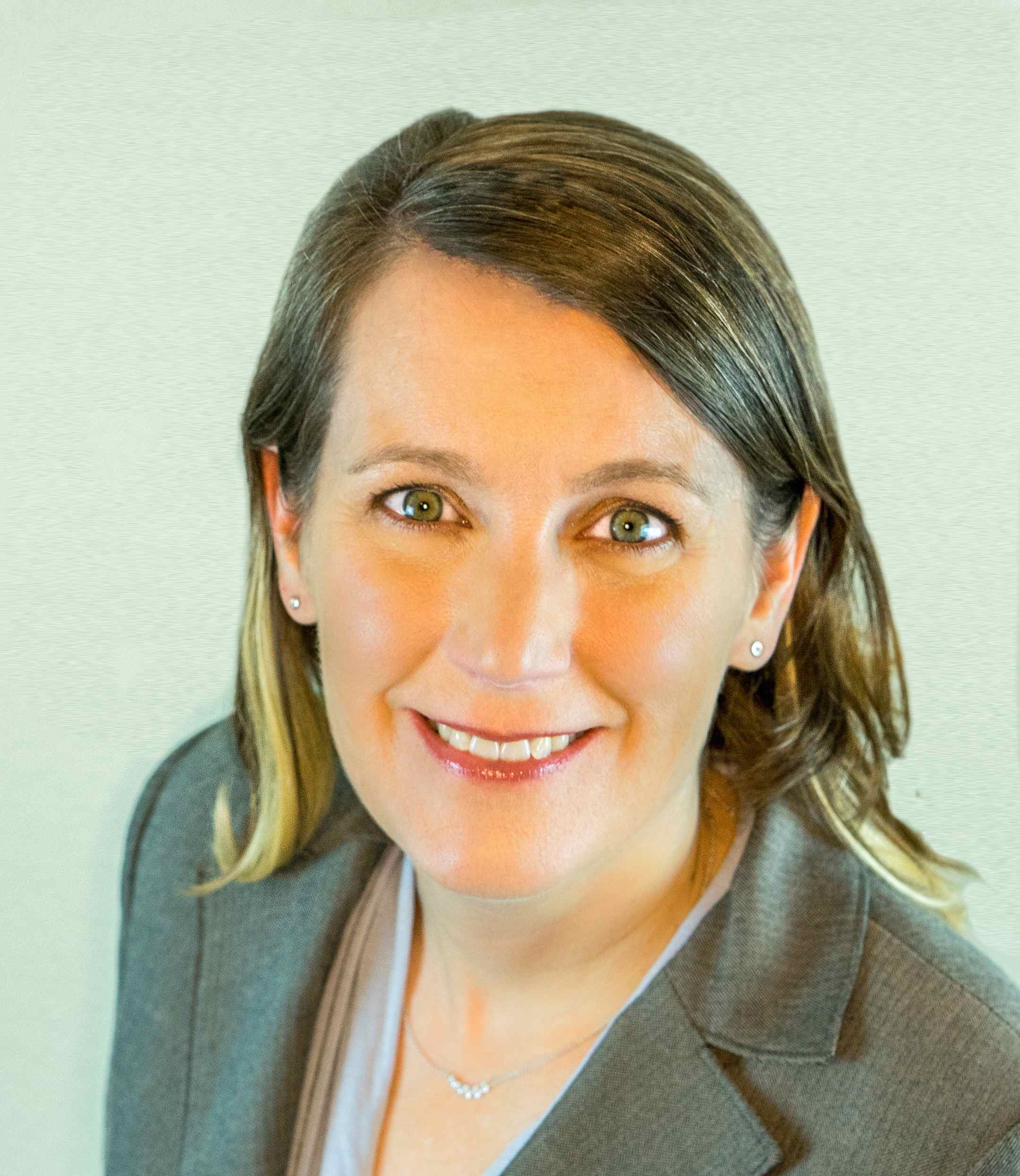
Jamie Singer, ’96
German B.A., Chemistry B.S., Laboratory Chemistry Research
The German major I earned from Carolina is invaluable in both my professional and personal life. It is my belief that an integral part of a quality education is immersion in a culture/language that is out of one’s comfort zone. The attempt, the process, the struggle to be understood, it teaches one so much beyond language—it fosters empathy with anyone with a different life experience than yours, with anyone who is attempting to understand your world.
While at Carolina, I was interested in the sciences, specifically in Chemistry, which conveniently was located in close proximity to the Department of Germanic Languages! Both programs gave me the flexibility to earn a double major in German and Chemistry.
I lived in the German house dorm (a suite in Carmichael) for a remarkable year. The effort that our faculty advisor made was incredible to facilitate this learning environment. Speaking German as much as possible that year gave me confidence to apply for a paid internship the summer between my junior and senior year in a German-speaking chemistry lab. Where else would you learn the names of all the lab equipment? I quickly found out what a “Dreihalskolben” was and that “Wie Bitte” was more appropriate than asking “Was”?
I found out from my chemistry advisor that he was required to take German when he went to college—all chemistry majors had to because almost all the early chemistry literature is written in German.
Fast forward twelve years into my laboratory chemistry career… I was able to translate a few German articles for colleagues during this time working in the drug discovery labs for Wyeth and then for Pfizer, but I had an opportunity and challenge I never saw coming next.
I’m currently working on a new investigational drug for cancer that is based on late 1800s chemical dye research published exclusively in German-language journal articles and patents. Because I speak and read German, I was able to translate the articles and develop a new synthesis for the active pharmaceutical ingredient, resulting in a US patent.
Professionally, my time in the Germanic languages department has paid incredible personal dividends. If the phase 3 clinical trial repurposing this 187’s dye technology is successful, then this work has the potential to impact cancer patients all over the world—all because I was interested in German and Chemistry at the same time, never knowing where it would lead. (1/12/2017)
David Palmer, ’04
David majored in German and received highest honors for his senior thesis entitled “Persecution & Propaganda: The Monstrous “Other” in German Cinema.” He also received the German program’s annual Ria Stambaugh award for undergraduate excellence. Instead of a career behind a desk, David went on after graduating from GSLL to pursue his love of the arts. Here’s what he’s been up to:
Read David's story...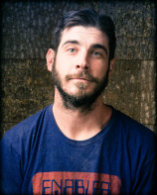
German B.A., Master Carpenter, 2014
My time at Carolina’s German program was so uplifting for me. In fact, I still read my honors thesis periodically. It is one of the greatest accomplishments of my life. I’ve been in Austin, TX, for a few years now working as a carpenter for Enabler LLC, a construction company featured in fancy design magazines like Dwell. Work, reading, and making art fill up the majority of my time.
It’s taken a long time for my German to come in handy as a carpenter, but that day has arrived! I work with about twenty carpenters and skilled tradesmen. We just recently hired a Swiss cabinet maker who has been making furniture for 20 years. He’s only 38! I am his apprentice and he’s become a close friend. We speak German with one another and he’s says Americans who speak German reduce everything to profanity. Not so with me. On the job, I have implemented my German while installing German-made cabinets. All of the part names and instructions are in German, so I am one of two people who can read them.
My latest project was a boat dock built on the Colorado River for the owner of Tom’s Shoes. I focused on random ebony-stained cedar boards that make up the exterior facades. I am just as proud of my building as I am of my work in German program! (9/7/2014)
Diana Bloom, ’11
Diana majored in German and is now based in Vienna, Austria, where she works for the United Nations. Here’s what she’s been up to since graduating:
Read Diana's story...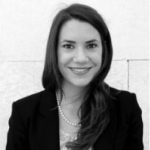
I have been living and working in Austria since I completed my B.A. at UNC in 2011. I originally came to Austria with the US Teaching Assistantship program under the auspices of the Fulbright Commission where I taught in secondary schools in Upper Austria and Vienna. I went on to study at the University of Vienna and now work for the United Nations in Vienna. I am an Associate ERP Training Officer for the International Atomic Energy Agency (IAEA), delivering IT training on our enterprise software, Oracle.
I use my German on a daily basis living in Vienna, which is consistently ranked as one of the top cities in the world to live. I would never have thought to move to Austria had it not been for the exposure to German and the support of my professors at UNC. I am extraordinarily fortunate to have embarked on this journey of living abroad, solidifying my German language abilities and navigating the adventures and cultural challenges that come along with being an expatriate. I feel uniquely tied to the Austrian-American community here in Vienna where I regularly attend events organized through the US Embassy and the Austrian-American Society. Studying German has opened up numerous doors for me, both professionally and personally. I owe that particularly to the opportunities UNC presented me as an undergraduate. (10/24/2016)
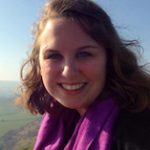 Nicole Johnson, ’14
Nicole Johnson, ’14
Nicole majored in German and received honors for her senior thesis entitled “Deconstructing the Masculine Wall: Exploring Gendered Experiences of German Reunification in Film and Autobiography.” She is currently in her first year of Georgetown University’s School of Foreign Service, pursuing a M.A. in German and European Studies. Here’s Nicole’s impression of her four years in GSLL:
Read Nicole's story...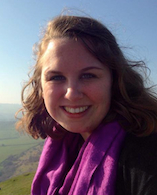
German B.A., 2014
M.A. Candidate,
Georgetown University, 2014
My experience in UNC’s German program was nothing short of fantastic. I loved the sense of community in the program and the accessibility of the faculty. I always felt supported by my teachers and fellow students. Focusing in German has provided me many amazing opportunities, and I strongly believe my area of focus will continue to open up many doors for me.
Because of the support of the German program and Carolina as a whole, I was able to study abroad my junior year for a total of 13 months. I spent the summer of 2012 interning in at the U.S. Embassy in Bern, Switzerland. I then went directly into the 2012-13 academic year studying Political Science at the Universität Konstanz, located in southern Germany on the beautiful Bodensee. I made friends from all over the world, worked and studied in an international environment, and travelled extensively throughout Europe. My time abroad was fun and adventurous, but also challenging and extremely formative.
Upon returning for my senior year, I opted to write a senior honors thesis in the German program. Working on my thesis was the highlight of my academic experience at Carolina. It allowed me to explore a topic I was passionate about in depth under the guidance of a great advisor, Dr. Richard Langston. The process pushed and developed my academic abilities and constantly challenged me. Ultimately, my thesis allowed me to explore my own interests and passions, which gave me guidance for my life after Carolina.
I am now a first year graduate student at Georgetown University’s School of Foreign Service pursuing a M.A. in German and European Studies. This two year program takes an interdisciplinary approach to studying European politics, economics, history, and culture in order to understand contemporary Europe. I know that my experiences both at UNC and here at Georgetown will allow me to realize my professional dreams. I plan to utilize my academic interests in German and European culture to launch a career in international relations either in Washington, D.C. or abroad in Europe.
Alexandra Talbert, ’15
Alex majored in German and received honors for her senior thesis entitled “Between Autonomy and Dissolution: The Aesthetics of Greek Tragedy in the Works of A.W. Schlegel and Friedrich Nietzsche.” She is currently a technology consultant for a software company in New York City. Check out Alex’s recollection of her time with GSLL:
Read Alex's story...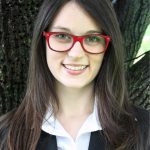
I started out originally as a Classics major at Carolina and after the first German philosophy class I took I was hooked. I immediately signed up for German 101 and adopted German Studies as my second major, which soon became my primary major.
Three German language classes later, with the help of the GSLL department, I was able to secure an internship in Hamburg at a Real Estate Investment firm through the American Chamber of Commerce in Germany. Not only did I have no clue what real estate investment entailed, but all of my work and workplace communication was in German. The work environment in Germany challenged me to improve my soft skills in adaptability and communication, and helped me gain valuable work experience for a well-rounded resume.
When I arrived back in Chapel Hill for the following semester, my internship advisors sought to improve the skills I had gained throughout my internship, and challenged me to even greater extents. From the moment I returned and sought independent study credit from my internship, up to when I had completed my honors thesis defense, the GSLL department was behind me every step of the way to ensure my growth.
After I graduated, I accepted a position as a business analyst at a software firm in New York. From the first day I started, I was thrown into a huge project and was tasked with becoming subject matter expert in partnership taxation. Not only did I have to learn the regulations and rules for this new project, but I also had to understand the culture and jargon within our client’s company. The GSLL department prepared me for these types of tasks even without even having the experience of an internship. Adaptability, communication, and research skills are some of the traits that made me more successful as a German student, and they also brought me success on my new and equally-as-foreign project.
My time with the GSLL department had prepared me for difficult and unknown challenges, and will continue to prepare me for greater challenges ahead. As I advance in my career path and eventually go back to graduate school, I have no doubt that the German program will always be there to support me in my next endeavor. (10/20/2016)
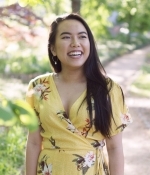 Linh Le, ’19
Linh Le, ’19
Linh majored in German Literature and Culture. A passion for education surrounding the Holocaust and other genocides has brought her to the Netherlands. What does she hope to accomplish there and why is it so important to her? Read more about Linh’s story to find out:
Read Linh's story...Linh Le, a recent UNC graduate with a BA in German Literature and Culture, will be attending the University of Amsterdam in the Netherlands this upcoming fall. She is pursuing a master’s degree in Holocaust and Genocide Studies, a year-long program that offers an interdisciplinary and comparative study of genocide theory. Her research interests include Holocaust education, the position of the Holocaust in contemporary society, as well as topics around lesser-known genocides. Her motivations stem from her desire to promote a deeper understanding of mass genocide and to prevent misinformation and ignorance. After completing the program, she aspires to work as a Holocaust educator, either in a museum or as a university lecturer.
GSLL Graduate Job Placement
UNC faculty have been training graduate students in Germanic and Slavic languages, literatures, and linguistics for professional careers both in higher education and beyond for well over 80 years. Here are just some of what our recent M.A. and Ph.D. holders are up to these days.
Roster of German & Slavic Alumni in Non-Teaching Positions
Alumni roster...Svetlana Krylova, M.A., ’00: Yost & Little Realty
Jason Mark Schenker, M.A., ’01: Prestige Economics
Biljana Belamaricwilsey, M.A., ’03: SAS
Ryan Irelan, M.A., ’03: Mijingo
Jeannette Norfleet, M.A., ’04: Speech Linguist Specialist, Davie County Schools
Melissa Anne Kotacka, M.A. ’05: Assistant Director of Admissions, The University of North Carolina at Chapel Hill
Nicholas Leblanc, M.A., ’05: Agreements & Data Integrity Specialist, North Carolina State University
Maxwell Mason, M.A., ’06: Director of Development, Principle Long Term Care, Inc.
Diane Caton, M.A., ’06: Management Services Corporation of Charlottesville, VA
Dave Kleinberg, Ph.D., ’06: Assistant Director for the Center of Global Education, John Carroll University
David Andersen, M.A., ’08: Social Studies Teacher, Burke County Public Schools
Christina Humphrey, M.A., ’08: Language Arts Teacher, Providence High School
Helen Halva, Ph.D., ’10: Editorial Assistant, Slavic and East European Journal
Scott Morrison, M.A., ’10: Assistant Customer Service Manager and Russian Language Specialist, Funcom Inc.
Dominique Hoffman, Ph.D., ’11: Literary Translation
Erin Merritt, M.A., ’13: Study Abroad Program Coordinator, Highpoint University
Jessica Ginocchio, M.A., ’13: State Affairs Intern, The Humane Society of The United States
Lara Szypszak, M.A., ’14: Library Technician in the Prints and Photographs Division, Library of Congress
Christian Straubhaar Ph.D., ’15: Java Programmer
Silia Kaplan Ph.D., ’14: Translator
Janice Hansen Ph.D., ’16: MA Candidate, School of Information and Library Science, UNC-Chapel Hill
Sandra Niedhardt Ph.D, ’16: Teaching in a German Gymnasium
* Please get in touch with us if you’re missing from our list. We certainly haven’t forgotten you. We just haven’t found out what you’ve been doing since you graduated!
Roster of Slavic Alumni with Academic Teaching Positions since 2000
Alumni roster...Lisa Michele Di Bartolomeo, Ph.D., ’01: Teaching Associate Professor, West Virginia University
Ludmila Provaznikova, M.A., ’01: Teaching Assistant, Oregon State University
Curtis Brendon Ford, PhD., ’01: Senior Instructor, University of South Carolina
Tanya Kinsella, Ph.D., ’01: Undergraduate Academic Program Coordinator, The University of North Carolina at Chapel Hill
Rimma Garn, Ph.D., ’04: Assistant Professor of Russian, The University of Utah
Jenne Powers, Ph.D., ’09: Assistant Professor of Humanities and Writing, Wheelock College
Kevin Reese, Ph.D., ’10: Lecturer of Russian, The University of North Carolina at Chapel Hill
Elena Clark, Ph.D., ’12: Teacher-Scholar Postdoctoral Fellow in Russian, Wake Forest University
Ekaterina Turta, M.A., ’14: Teaching Assistant, University of Pittsburgh
Natalia Chernysheva, Ph.D., ’17: GSLL Lecturer, University of North Carolina at Chapel Hill
* Please get in touch with us if you’re missing from our list. We certainly haven’t forgotten you. We just haven’t found out what you’ve been doing since you graduated!
Roster of German Alumni with Academic Teaching Positions since 2000
Alumni roster...Lutz Kube, Ph.D., ’00: Teaching Assistant Professor, North Carolina State University
Sean Lawing, M.A., ’00: Assistant Professor of History, Chair of Department of History and Social Sciences, Bryn Athyn College
Eckhard Rölz, Ph.D., ’00: Associate Professor of German, South Dakota State University
Dan Thornton, Ph.D., ’00: Adjunct Assistant Professor of Dutch, The University of North Carolina at Chapel Hill
Arne Koch, Ph.D., ’01: Associate Professor of German, Colby College
Gregor Thuswaldner, Ph.D., ’03: Provost and Executive Vice President and Professor of World Languages, Whitworth University
Paul Youngman, Ph.D., ’03: Professor of German, Washington and Lee University
Sally Gray, Ph.D., ’04: Associate Professor of German, Mississippi State University
Edward Potter, Ph.D., ’04: Associate Professor of German, Mississippi State University
David Smith, Ph.D., ’05: Associate Professor of German, East Carolina University
Marina Jones, M.A., ’05: Lecturer, Faculty-in-Residence, Oberlin College
Maya Gerig, Ph.D., ’06: Assistant Professor of Italian, University of Utah
Catherine Mainland, Ph.D., ’06: Senior Lecturer of English, North Carolina State University
Oliver Ham, M.A., ’07: German and ESL Teacher, Northwest High School
Margaret Mauer, M.A., ’07: Instructor of English and German, Highpoint University
Derrick Miller, Ph.D., ’07: Associate Professor of German, Chair of Department of World Languages and Cultures, The University of North Carolina at Wilmington
Richard Apgar, Ph.D., ’08: Assistant Professor of German, Sewanee: The University of the South
Cyrus Shahan, Ph.D., ’08: Assistant Professor of German, Colby College
Jennifer Orr, M.A. ’09: Adjunct Instructor of German, Virginia Polytechnic Institute and State University
Robert Blankenship, Ph.D., ’11: Assistant Professor of German, California State University
Rebeccah Dawson, Ph.D., ’11: Assistant Professor of German, University of Kentucky
Anja Wieden, Ph.D., ’11: Assistant Professor of German, Oakland University
Kai-Uwe Werbeck, Ph.D., ’12: Assistant Professor of German, The University of North Carolina at Charlotte
Susanne Gomoloch, Ph.D., ’12: Lecturer of German, The University of North Carolina at Charlotte
Alexander Fulk Kirkland, Ph.D., ’13: Assistant Professor of German, The University of Texas at Austin
Elizabeth Schreiber-Byers, Ph.D., ’13: Assistant Professor of German, Ball State University
Sara Farner Budarz, Ph.D., ’14: Lecturer of German, The University of North Carolina at Chapel Hill
Matthew Feminella Ph.D., ’10: Assistant Professor of German, The University of Alabama
April Henry Ph.D., ’08: Instructor of German, Duke University
Tayler Kent Ph.D., ’10: Instructor, Auburn University
Shelley Hay Ph.D., ’10: Associate Professor, University of Wisconsin, La Crosse
Nicolay Ostrau Ph.D., ‘ll: Senior Lecturer of German Studies, Research Assistant Professor of German Studies, Dartmouth College
Rory Bradley Ph.D., ’16: Visiting Assistant Professor, Colby College
Lindsey Brandt Ph.D, ’15: Curriculum Developer, Montana State University-Northern
Erik Grell Ph.D.,’15: Assistant Professor, Furman University
Heidi Hart Ph.D., ’16: Post-Doc, Languages, Philosophy, and Communication Studies, Utah State University
Steffen Kaupp Ph.D., ’16: Assistant Teaching Professor of German, Executive Director of Notre Dame Berlin Summer Programs, Notre Dame University
Annegret Oehme Ph.D., ’16: Assistant Professor, University of Washington-Seattle
Emma Woelk Ph.D., ’15: Assistant Professor, St. Edward Univeristy (Austin, TX)
Richard “Tres” Lambert Ph.D., ’17: Assistant Professor of German, Gettysburg College
Claire Scott Ph.D., ’17: Lecturer, University, North Carolina – Chapel Hill
Christine Kenison Ph.D., ’17: Assistant Professor, St. Anselm’s College – Manchester, NH
Lukas Hoffman Ph.D., ’23: Post-Doctoral Fellow at Tübingen University
Nicholas David Jones Ph.D., ’23: Nicholas Jones, Ph.D. ’23, Visiting Teaching Assistant Professor, UNC-Chapel Hill
Undraa Lhamsuren Ph.D., ’23: Visiting Assistant Professor, College of Charleston
Joshua Shelly Ph.D., ’23: Scholarly Librarian in the University Library of the University of Potsdam
* Please get in touch with us if you’re missing from our list. We certainly haven’t forgotten you. We just haven’t found out what you’ve been doing since you graduated!






